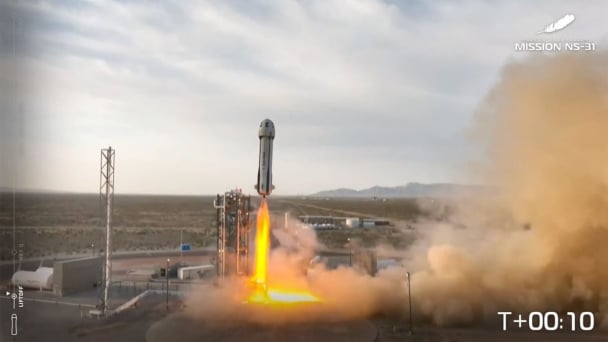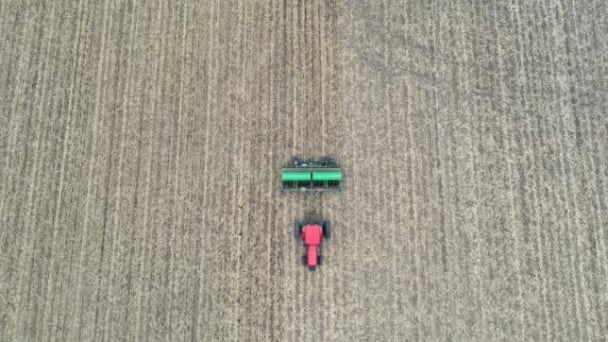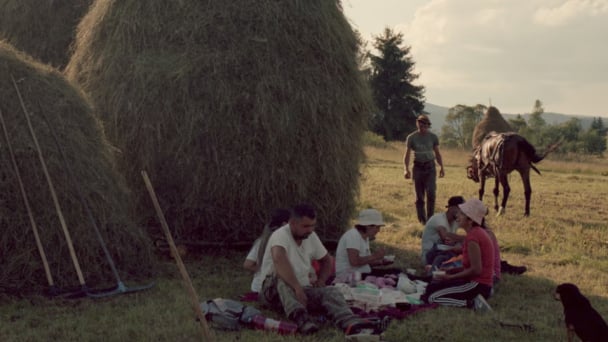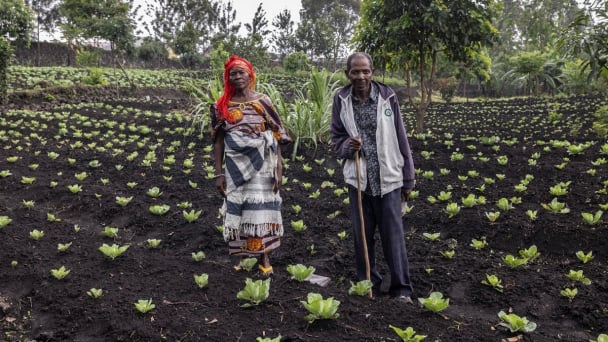April 16, 2025 | 13:14 GMT +7
April 16, 2025 | 13:14 GMT +7
Hotline: 0913.378.918
April 16, 2025 | 13:14 GMT +7
Hotline: 0913.378.918

Members and supporters of the Farmers Defense Force (FDF) demonstrate against the government's nitrogen policy in the Zuiderpark in The Hague.
On Saturday, fresh protests took place in The Hague ahead of provincial elections set to take place on 15 March which will appoint members of the Dutch Senate.
More than 10,000 farmers joined the action, many flying the country’s flag upside down in a symbolic representation of the movement.
They say that the new regulations to cut nitrogen emissions have been exaggerated and current proposals to solve the problem are unfair and ineffective.
Now a new political force is rising in the country in the wake of these protests: the BoerBurgerBeweging (BBB) or Farmer-Citizen Movement. The party was founded in 2019 by agricultural journalist Caroline van der Plas - currently its only MP.
Why are Dutch farmers protesting?
Prime Minister Mark Rutte has committed to halving nitrogen emissions in the Netherlands by 2030. Levels of nitrogen oxides in the country’s air and water are currently higher than EU regulations allow.
A lot of these emissions come from the waste produced by the country's more than 100 million cows, pigs and chickens. Despite its small size, the Netherlands is the world’s second-biggest exporter of agricultural products by value behind the US.
To cut nitrogen emissions, the government plans to reduce livestock numbers by a third and it could mean that some farmers face compulsory buyouts.
Despite many in rural regions acknowledging the significance of the climate crisis, Rutte has been criticised for the sudden announcement of these agriculture plans.
Why is the BBB growing in popularity?
The upcoming elections will appoint members of the Dutch Senate from across the country. These representatives and regional governments are responsible for translating goals like the plan to reduce nitrogen emissions into real plans.
The latest polling indicates that BBB could take around 12 per cent of the vote.
The government’s plans to reduce the number of livestock in the Netherlands and close some farms have caused the party to soar in popularity - especially in rural areas. In the north and east of the country, polling indicates it could even become the largest political party.
If the BBB wins enough seats in the Dutch Senate, it could form an alliance with far-right parties to block these new nitrogen emission regulations.
Just 0.001% of earth’s population enjoy safe levels of air pollution, study shows
Practically nowhere on earth is safe from toxic air pollution, a new study has revealed.
According to Australian research, just 0.18 per cent of global land area is free from dangerous Particulate Matter (PM2.5.)
As many of these areas are uninhabited, just a sliver - 0.001 per cent - of the global population are exposed to safe levels of this dangerous particle.
“Short-term exposure to ambient PM2.5 is a leading contributor to the global burden of diseases and mortality,” the report authors warn.
Ambient air pollution caused 6.67 million premature deaths in 2019.
The researchers ranked air quality by country for the years 2000, 2010, and 2019.
For each of these years, China had the highest PM 2.5 concentration when weighted by the total population affected by this pollution.
In 2019, in China, North Korea, Bangladesh, Niger, South Korea, Mauritania, Armenia, India, Pakistan, and Egypt more than 90 per cent of days of the year exceeded 15 μg/m3.
(ERN)

(VAN) 169 lotus seeds selected by the Vietnam Academy of Agricultural Sciences were carried into space by Vietnamese-American astronaut Amanda Nguyen.

(VAN) Tariffs are making life more expensive for John Pihl. He's been farming in Northern Illinois for more than 50 years.

(VAN) European and American farmer organisations are concerned about the import tariffs that the United States introduced on 9 April for products from the European Union. This makes them 20% more expensive.

(VAN) Global poultry trade is expected to remain strong amid relatively tight global protein supply and growing consumption, RaboResearch concludes in its latest animal protein report.

(VAN) Traditional methods benefit hundreds of species but as new agricultural techniques take over, the distinctive haystacks mark a vanishing way of life.

(VAN) The nation’s top banks are quietly advising their clients on how to build a financial life raft - or perhaps life yacht - from the wreckage of runaway climate change.

(VAN) From FAO Office in the Democratic Republic of the Congo.